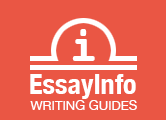Here are the keys to writing successful (and dynamic) cover letters. Follow these simple rules and you should achieve success in this important phase of job-hunting.
- Don't ever send your resume without a cover letter.
- Do address your letter to a named individual.
- Don't use a sexist salutation, such as "Gentlemen" when answering a blind ad.
- Don't waste your first paragraph by writing a boring introduction. Use the first paragraph to grab the employer's attention; give the employer the reasons you are qualified for the position.
- Do send an original letter to each employer.
- Don't use such cliches as "Enclosed please find my resume" or "As you can see on my resume enclosed herewith." Employers can see that your resume is enclosed; they don't need you to tell them. Such trite phrases just waste precious space. And don't use pleonasms (wordy phrases), which also waste space.
- Don't depend on the employer to take action. Request action. Request an interview, and tell the employer when you will follow up to arrange it. Then, Do So. It is imperative that you follow up. You will greatly increase your chances of getting interviews if you call the employer after writing instead of sitting back and waiting for a call. Those who wait for the employer to call them will generally have a long wait indeed.
- Don't send a cover letter that contains any typos, misspellings, incorrect grammar or punctuation, smudges, or grease from yesterday's lunch.
- Do use simple language and uncomplicated sentence structure. Ruthlessly eliminate all unnecessary words. Follow the journalist's credo: Write tight!
- Do speak to the requirements of the job, especially when responding to an ad.
- Do keep your letter brief. Never, Never more than one page, and it's best to keep it well under a full page. Each paragraph should have no more than one to three sentences.
- Do tell the employer how you can meet his or her needs and contribute to the company.
- Do distinguish your cover letter from those of other job seekers by quantifying and giving examples that amplify and prove the claims you make in your letter.
- Do try to answer the question that the employer will be asking while reading your letter: "Why should I hire this person?"
- Don't rehash your resume. You can use your cover letter to highlight the aspects of your resume that are relevant to the position, but you're wasting precious space - and the potential employer's time - if you simply repeat your resume.
- Do avoid negativity. Negativity never has a place in a cover letter.
- Do be sure the potential employer can reach you.
- Do use action verbs.
- Don't forget to personally sign the letter, preferably in blue ink.
- Do use e-mailed cover letters, but keep them shorter and more concise.

